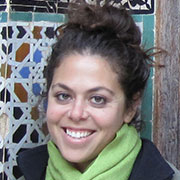Date:
Tuesday, February 11, 2020 - 9:00am to 10:30am
Quarter:
Winter 2020
The event is co-sponsored by Stanford Lemann Center, Stanford Center for Latin American Studies, and Stanford Center for Human Rights and International Justice
About The Stanford Human Trafficking Data Lab
The Stanford Human Trafficking Data Lab is a multidisciplinary research collaboration with both academic expertise and frontline anti-trafficking experience working to bring the most promising innovations in modern data science to the fight against traffickers.
Our multi-disciplinary team works to:
- create an open-source data repository that will serve as a global model for innovation in anti-trafficking research;
- develop novel research methods to move beyond prevalence measures toward evidence-based, actionable knowledge about trafficking markets and their underlying incentive structures; and
- actively engage with policymakers and frontline actors to generate new insights on anti-trafficking interventions, identifying the most effective solutions and adapting them for global scale.
Speakers:

Grant Miller (Associate Professor of Medicine, Senior Fellow at the Freeman Spogli Institute for International Studies and Senior Fellow at the Stanford Institute for Economic Policy Research at Stanford University) is a health policy scholar focused on health and population low-income countries. Professor Miller is also a Research Associate at the National Bureau of Economic Research (NBER) and an affiliate of other research organizations focused on international development (including the Abdul Latif Jameel Poverty Action Lab and the International Growth Centre). Recently he was the founding director of the King Center on Global Development at Stanford.

Luis Fabiano de Assis is a Brazilian Federal Prosecutor, Data Scientist, Chief Research & Data Officer at the Federal Labor Prosecution Office in Brazil and head of the SmartLab Initiative, a multi-stakeholder data collaboration to foster innovative, evidence-based policies to protect human rights at work and combat child labor and human trafficking. In addition to his work in Brazil, he has advised the United Nations, the International Labour Organization, and the World Bank on issues of data-driven policies, data analytics, and new open-source data technologies. He is a Visiting Scholar at the Center for Human Rights and International Justice at Stanford and a member of the Human Trafficking Data Lab.

Vicki Ward is an assistant professor of pediatrics at Stanford Children’s Hospital Stanford, with a research focus in pediatric global health. Her current projects include the evaluation of the Bill & Melinda Gates Foundation’s large-scale investment in maternal child health in Bihar, India, and the implementation of a multi-site study of preterm birth in low resource settings. In addition to her work as a physician, she has worked extensively on the issue of human trafficking, and currently serves as the Executive Director for Made in a Free World and on the Board of Directors for FRDM.

Jessie Brunner serves as Senior Program Manager at the Center for Human Rights and International Justice at Stanford University. Jessie currently researches issues relevant to data in the human trafficking field, both locally in the Bay Area up to the global level as part of the UN agenda on Sustainable Development Goal 8.7 related to human trafficking and forced labor.

Kimberly Babiarz is a research scholar at the Center for Health Policy and the Center for Primary Care and Outcomes Research. Her work focuses on a variety of global health topics including family planning, gender inequality, infant mortality, and human trafficking.



